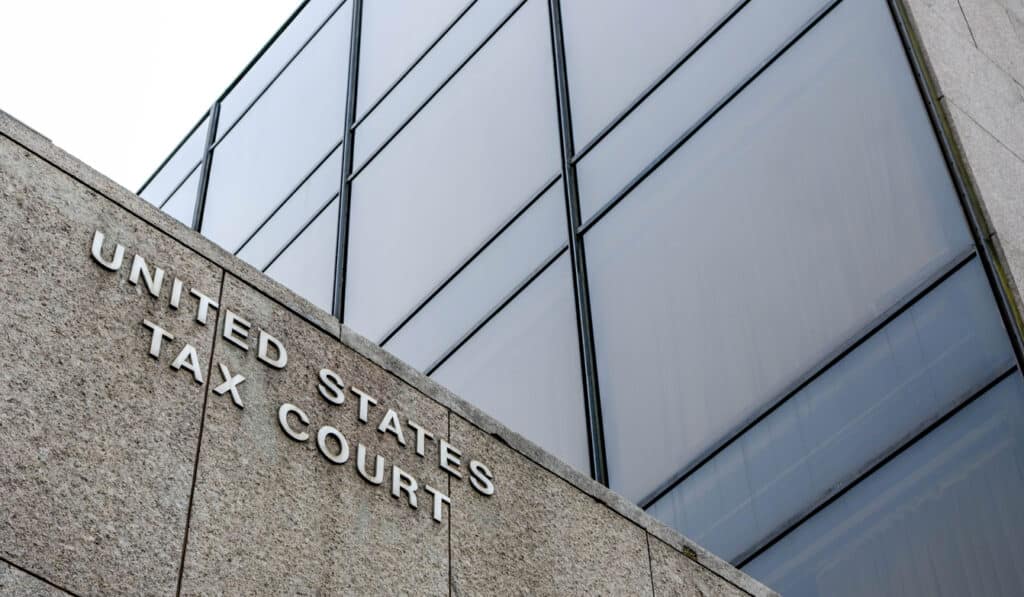The U.S. Court of Appeals for the D.C. Circuit (which hears all appeals from U.S. Tax Court cases involving whistleblowers) issued a recent decision in the case of Li v. Commissioner of Internal Revenue; No. 20-1245 (D.C. Cir. 2022) that highlights when it makes sense for a tax whistleblower to go to Tax Court.
As background, I have represented a number of tax whistleblowers successfully in tax court – most notably in the cases of 11332-13W v. CIR, 142 TC 21 (2014) and (with co-counsel Stephen M. Kohn) the landmark victory for tax whistleblowers in 21276-13W v. CIR, 147 TC 4 (2016), where it was determined that criminal fines and civil forfeitures are considered “collected proceeds” when calculating an award).
In the case of Li, the Appellate Court narrowed when a whistleblower may appeal to Tax Court a denial from the IRS whistleblower office. In the facts of Li – the whistleblower’s filing was knocked out right from the beginning with the IRS Whistleblower Office reviewer finding that the whistleblower’s allegations were “speculative and/or did not provide specific or credible information regarding tax underpayments . . .” The whistleblower’s filing was not forwarded to the field and instead a denial letter was sent to the whistleblower.
The Li Court, in short, placed two requirements for a whistleblower before the Tax Court would have jurisdiction to hear a whistleblower case:
- The IRS must proceed with any administrative or judicial action as to the taxpayer based on information provided by the whistleblower; and
- The IRS collects proceeds from that action.
With the facts in Li, the Circuit Court found there was no action taken because the filing by Li was summarily rejected by the IRS; never sent to the exam team – and therefore no proceeds were collected. Of note, in footnote 2 of the Court’s opinion, it is made clear that Li did not argue that the IRS, in fact, did proceed against the taxpayer. A key sentence from that footnote:
So we need not and do not decide whether the Tax Court would have jurisdiction to hear a whistleblower’s claim in a case in which the IRS wrongly denied a Form 211 application but nevertheless proceeded against a target taxpayer based on the provided information.
It would be eye-blinking (and completely against Congressional intent) if the Tax Court (or later D.C. Circuit) were to rule it doesn’t have jurisdiction where the whistleblower asserts that the IRS did in fact proceed based on her information and proceeds were collected. The language in the footnote highlights all the more the need for Congress to clarify that tax whistleblower cases should receive de novo review in the tax courts – as proposed in the bipartisan/bicameral IRS Whistleblower Program Improvement Act.
However, the D.C. Circuit’s decision does underscore that in making a filing to the Tax Court the whistleblower needs to state (or assert based on belief) that two tests are met: the IRS proceeded based on their information and proceeds were collected.
As a general rule, I view meeting these two tests (or reasonably believing the tests have been met) as a critical threshold for deciding whether a whistleblower should file in Tax Court. Recall that to prevail in Tax Court on a tax whistleblower case – the whistleblower needs to show:
- The whistleblower provided the government/IRS information;
- The government/IRS took action/proceeded in regards to the taxpayer based on that information; and,
- The action/proceed resulted in collected proceeds from the taxpayer.
Many of the significant whistleblower cases that are in Tax Court now are where the IRS has admitted that all three tests are met but the fight is whether the information provided to the IRS by the whistleblower was “substantive” in regards to the IRS action (this reflects a misreading by the IRS of the word “substantive” in the text of 26 USC 7623(b)(1) – where the question of substantive relates only to the percentage of the award – not whether the whistleblower is entitled to an award).
Alternatively, the question is commonly whether the whistleblower should be entitled to a “related action” based on the information which they provided (which resulted in the IRS taking a related action resulting in collected proceeds). Again, the IRS interpretation is often overly narrow in these related action cases.
In sum, the Li decision reinforces what was already a best practice – taking a denial to Tax Court in a case where we know the IRS did nothing and/or collected nothing just is a dead end. Similarly, taking cases to Tax Court where the IRS has summarily rejected the submission – with a view toward getting the Tax Court to direct the IRS to “look again” also is problematic (better to consider a refiling) – with the Tax Court not willing to engage in directing the IRS actions.
However, cases where the second and third tests have been met (or reasonably believe they have been met) – tax whistleblowers should continue to give a hard look for considering an appeal to Tax Court.
